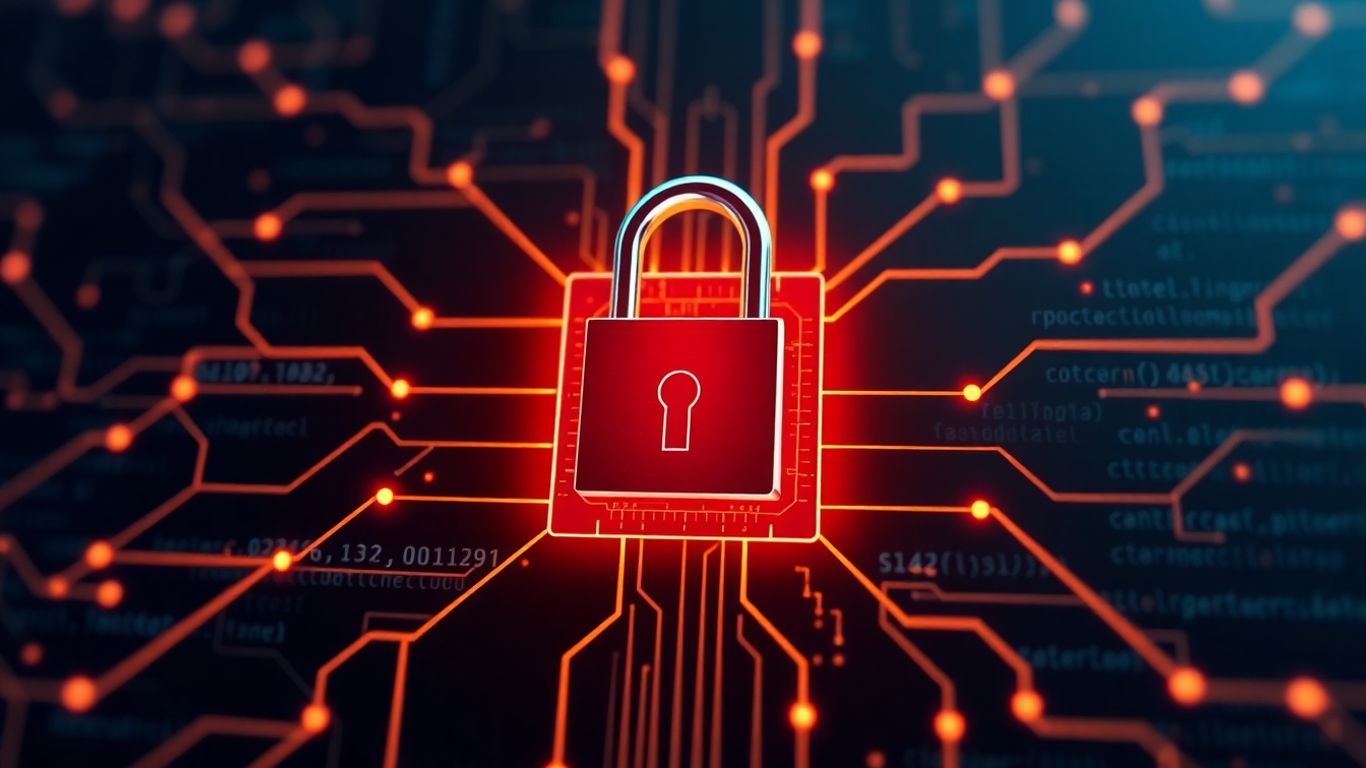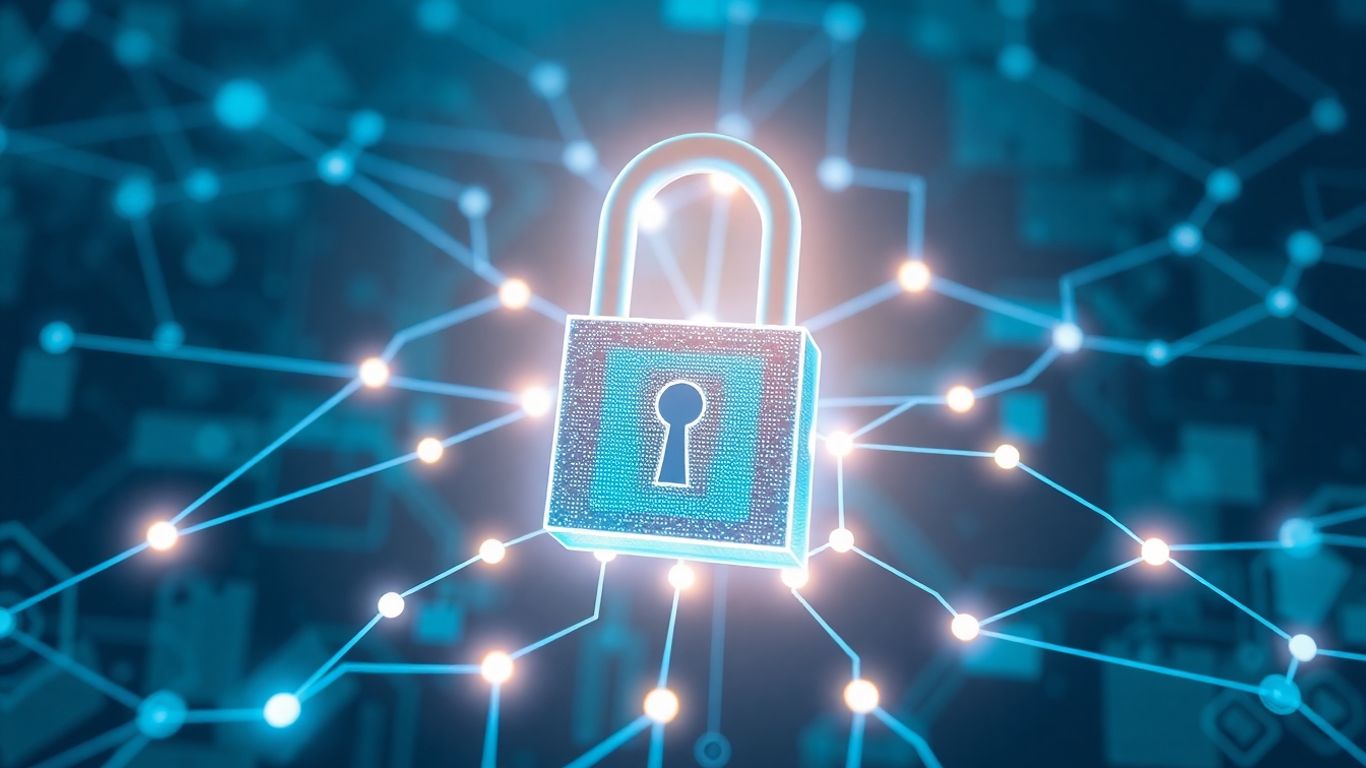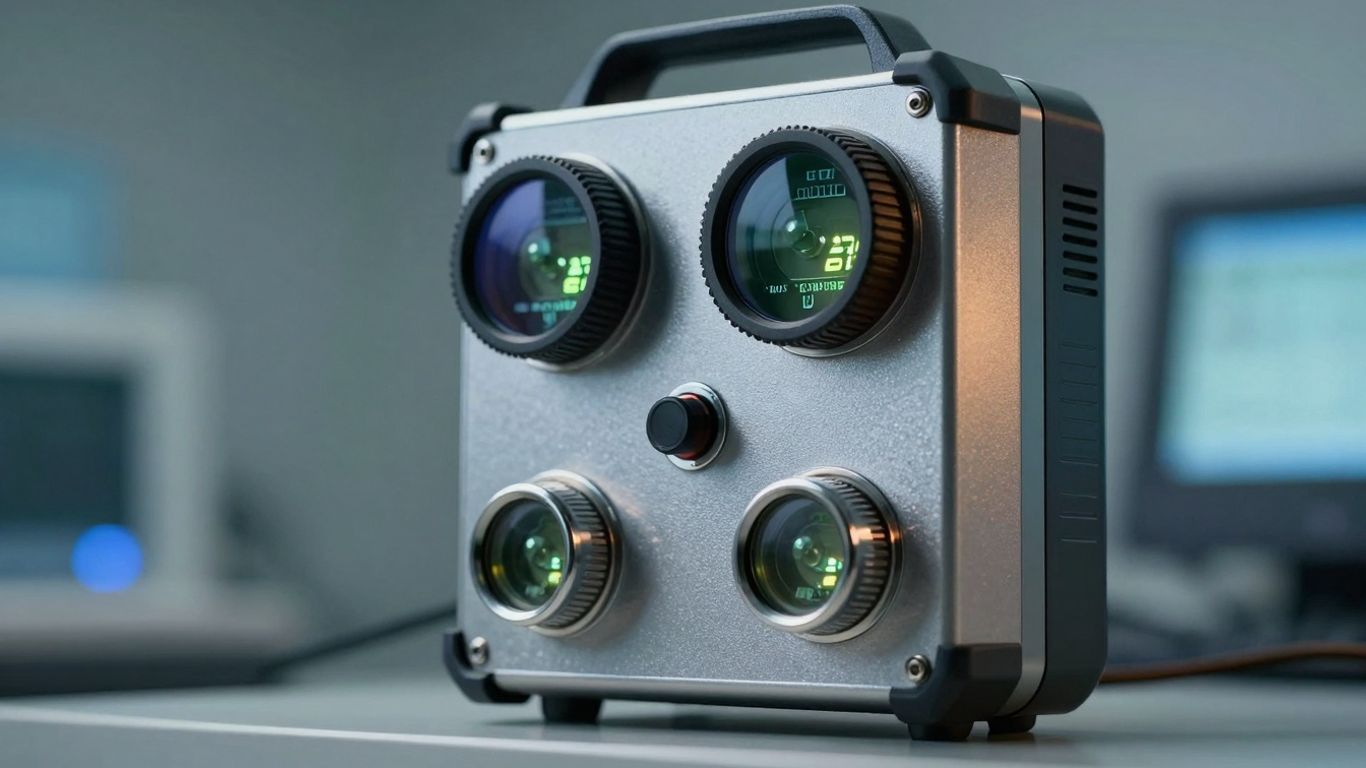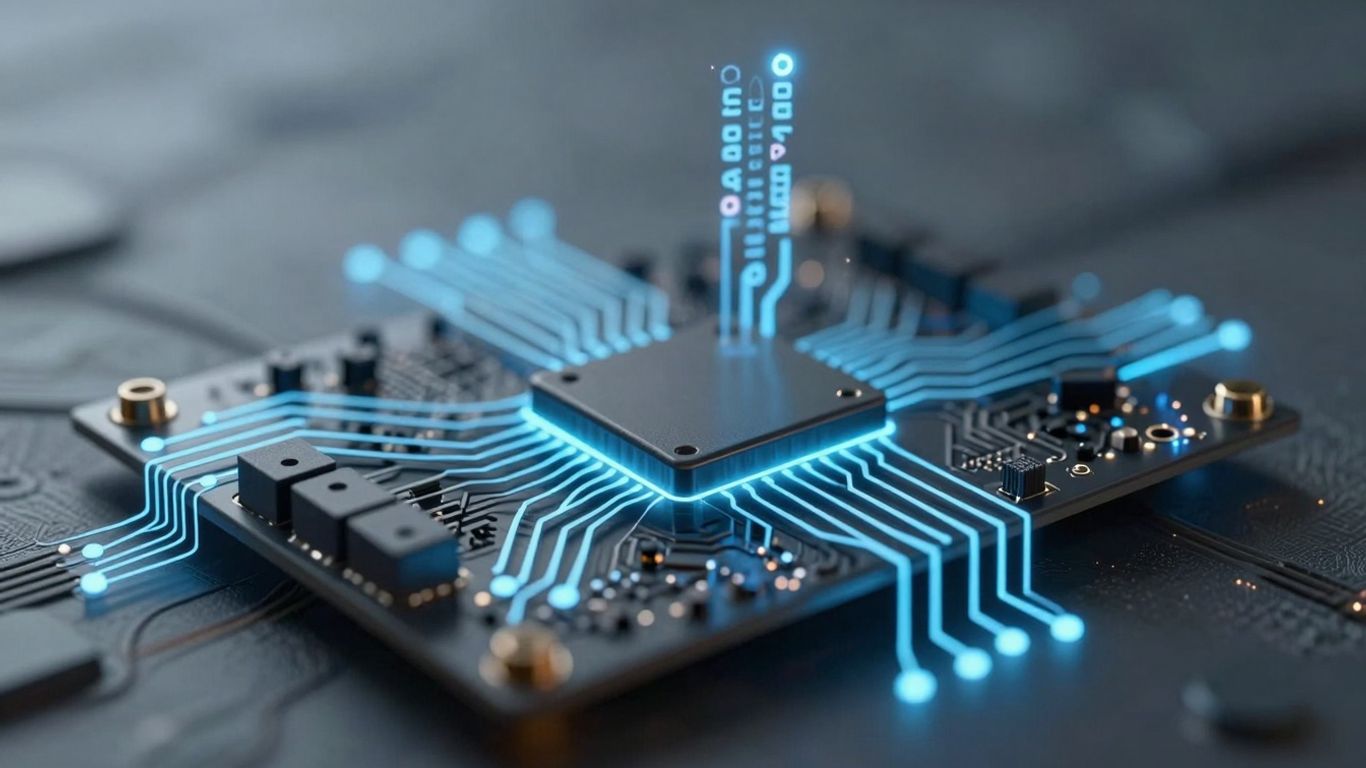[ newsletter ]
Stay ahead of Web3 threats—subscribe to our newsletter for the latest in blockchain security insights and updates.
Thank you! Your submission has been received!
Oops! Something went wrong. Please try again.
Master blockchain auditing with best practices for modern security. Explore tools, skills, and emerging trends for robust audits.





The world of auditing is changing, and fast. New tech like blockchain is shaking things up, making old ways of doing things feel a bit… well, old. We need to get smart about how we check the books and make sure everything is on the up and up. This article is all about understanding the big picture of blockchain auditing and what it means for auditors today and tomorrow. Let's figure out how to get ahead of the curve.

So, blockchain. You hear about it with Bitcoin and all that, but it's actually got some pretty big implications for how we audit things these days. Think of it like a super secure, shared digital notebook where every single transaction gets written down. Once it's in there, it's pretty much impossible to change or erase. This is a game-changer for auditors because it means we can trust the records we're looking at a lot more.
This whole immutable ledger thing means you can see exactly where money or data has gone, step-by-step. It’s like having a perfect history book for every transaction. This makes it way easier to follow the money, spot any weird activity, and generally just understand the flow of things. For auditors, this means less time spent chasing down paper trails and more time actually analyzing what’s going on. It’s a big deal for making sure everything is above board. This level of clarity helps significantly in identifying discrepancies and ensuring financial integrity.
Because you can't just go back and alter a record on the blockchain without everyone noticing, it’s a really strong defense against fraud. If someone tries to mess with the books, the blockchain itself flags it. This is huge for financial audits, where keeping records straight is the whole point. It means auditors can be more confident that the data they’re reviewing hasn’t been tampered with, which really cuts down on the risk of fraud slipping through the cracks. It’s about being prepared and minimizing potential downsides. Using blockchain audit tools is like having a security guard for your digital assets. They constantly monitor for threats, identify weaknesses, and help you take action to protect your investments. It's a proactive approach to security that can make all the difference in the long run. You can find more about this in a comprehensive crypto security audit here.
When it comes to following rules and regulations, blockchain can make life a lot simpler. All the transactions are recorded in a way that’s easy to check and hard to fake. So, when it’s time to prove you’re compliant with something, you’ve got a clear, unchangeable record right there. Auditors can look at this and quickly verify that everything is in order, saving a ton of time and effort compared to digging through old files and systems. It’s like having a pre-verified report ready to go.
The core idea is that by using blockchain, we get a level of certainty about transaction history that traditional systems just can't match. This shift means auditors can focus more on strategic analysis rather than just verifying the basic accuracy of records.
The auditing world is shifting, and if you're an auditor looking at blockchain, you've got to keep pace. It's not just about crunching numbers anymore; it's about grasping the tech behind them. You need to feel comfortable with data and computers, and that's just the starting point. Think of it like this: you wouldn't try to fix a car without knowing what a wrench is, right? Auditing blockchain is similar, but your tools are different.
Auditors today need to get friendly with data. This means more than just looking at spreadsheets. You'll be working with big datasets, finding patterns, and spotting things that seem off. Knowing how to use data analysis tools is a must. It helps you dig deeper into transactions and see what's really going on.
The ability to interpret complex data sets and identify anomalies is becoming as important as traditional accounting principles.
Keeping up with technology means learning how to use the new tools that are coming out. This isn't a one-time thing; it's an ongoing process. You have to be willing to learn and adapt as new software and platforms emerge.
Being an auditor isn't just about finding mistakes. It's also about helping businesses improve. When you understand blockchain, you can give better advice. This requires understanding how blockchain fits into a company's overall operations and thinking about the new risks that come with using it.
Auditors need to be like chameleons, changing and learning new things all the time. They should be good with technology, understand how to look at lots of data, and be open to new ideas. Thinking globally and being flexible helps them stay ahead and find new ways to help companies do better.
Alright, so you've got these blockchain audit tools, and they're pretty neat. But just having them isn't enough; you've got to use them right. Think of them like a fancy wrench set – great for the job, but you still need to know how to turn the bolts.
Automated tools are fantastic for the heavy lifting. They can scan through code at lightning speed, catching those common, obvious security holes like a leaky faucet. But here's the thing: they're not always the sharpest tools in the shed when it comes to the really tricky stuff. They can miss subtle logic errors or things that just don't make sense from a business perspective. That's where a human auditor comes in. A skilled auditor can spot the nuances and context that a machine might overlook. It's like having a super-fast scanner and then a detective to figure out what the scanner found. You really need both to get a solid picture of security.
The blockchain world moves fast, like, really fast. New ways to mess with systems pop up all the time. If your audit tools are stuck in the past, they're basically useless. You need to keep them updated. This means getting the latest security patches and making sure they know about the newest types of attacks. It's not a 'set it and forget it' kind of thing. You have to stay on top of it, almost like keeping your antivirus software current. If you don't, you're leaving yourself open to problems that your tools should have caught.
This is a big one for making your life easier. If you can get your audit tools to work directly with the places where you write your code (like your IDE or your code repository), it's a game-changer. It means you can run checks as you're building, not just at the end. Catching a problem early is way easier and cheaper than fixing it later. It makes security a part of the building process, not an afterthought. Imagine getting a warning right when you type a line of code that's a bit risky – that's the goal here. It helps build more secure code from the ground up.
The way we audit is changing, and blockchain is a big reason why. It's not just about finding mistakes after they happen anymore; it's about stopping them before they even start and keeping up with all the new blockchain tech. Here’s a look at what’s new and what’s coming:
Artificial intelligence (AI) and machine learning (ML) are becoming really important in auditing. These tools can look through code much faster and more thoroughly than people can. They can spot potential problems that a human auditor might miss. Think of it like having a super-smart assistant that never gets tired and learns from every audit it does. AI can recognize patterns in past issues and even predict where new problems might pop up in code. This means audits can be more proactive, catching things before they become major issues. It's not a perfect solution yet, but it's a significant step forward in making audits more effective.
Instead of just auditing code once it's written, there's a big push towards checking systems all the time, in real-time. This means constantly watching smart contracts and blockchain networks for any unusual activity. It’s like having a security guard watching over your digital assets 24/7. This approach can help catch attacks as they are happening, giving developers a chance to react quickly and stop big problems from occurring. It’s all about being ready and staying ahead of potential threats.
Here’s what real-time monitoring can involve:
This shift towards continuous oversight means auditors can move from a reactive stance to a more proactive one, identifying and addressing risks as they emerge rather than after the fact.
Most traditional audits are done by a single company or a group of experts. However, there's growing interest in decentralized auditing. This means having multiple parties involved in the auditing process. This approach could bring more diverse perspectives and potentially increase the overall reliability of the audit findings. It’s a way to spread the responsibility and reduce reliance on a single point of review.

So, what does blockchain actually do for our audit trails? Think of it like this: instead of a paper ledger that someone could smudge or change, blockchain is like a digital record book that's copied and shared across tons of computers. Once something is written down, it's pretty much there forever, and everyone can see it. This makes it way harder for anyone to mess with the records. This shift towards blockchain in auditing isn't just about adopting new tech; it's about fundamentally changing how we ensure the accuracy and trustworthiness of financial and operational data. It moves us towards a system where integrity is built into the very structure of the records themselves, rather than relying solely on post-event checks and balances. This proactive approach to data integrity is what modern auditing needs.
This whole immutable record thing is a big deal for keeping data safe and making sure companies are following the rules. Because the records can't be easily altered, it’s a lot easier to track who did what and when. This helps companies stay compliant with regulations, especially when dealing with sensitive information. For auditors, this means less time spent chasing down paper trails and more time actually analyzing what’s going on. It’s a big deal for making sure everything is above board. For example, in healthcare, tracking patient data access becomes much more secure. Auditors can look at this chain of records and feel more confident that the data hasn't been tampered with, which is a huge win for data security.
Think about it – technology is moving at lightning speed. What was cutting-edge a few years ago is practically old news now. For auditors, this means we can't just stick to the old ways of doing things. We need to be open to new tools and methods. Blockchain, for instance, can completely change how we track transactions and verify data. Instead of sifting through piles of paper or digital files, we can have a secure, transparent record that's almost impossible to mess with. This isn't just about making our jobs easier; it's about providing a better, more reliable service to our clients and stakeholders. It's a way to show that you’re serious about data integrity and responsible management. It's about getting ahead of the curve, not just reacting to it. This means auditors need to be ready for whatever comes next, and blockchain is a big part of that. It's a shift from just looking backward at what happened to also looking forward at how to prevent issues before they even start. We have to be willing to learn and adapt, or we'll get left behind.
When it comes to following rules and regulations, blockchain can make life a lot simpler. All the transactions are recorded in a way that’s easy to check and hard to fake. So, when it’s time to prove you’re compliant with something, you’ve got a clear, unchangeable record right there. Auditors can look at this and quickly verify that everything is in order, saving a ton of time and effort compared to digging through old files and systems. It’s like having a pre-verified report ready to go. The core idea is that by using blockchain, we get a level of certainty about transaction history that traditional systems just can't match. This level of detail makes it simpler to spot any odd activity or unauthorized access. It really cuts down on the guesswork involved in traditional audits. Ultimately, using blockchain for audit trails builds more trust. When stakeholders, whether they're investors, customers, or regulators, know that the records are secure and transparent, it makes them feel better about the organization. It’s not just about preventing fraud; it’s about creating a reliable system that everyone can depend on. This can be particularly important for companies that handle a lot of sensitive information or operate in highly regulated industries. It's a way to show that you’re serious about data integrity and responsible management. We need to get smart about how we check the books and make sure everything is on the up and up. This article is all about understanding the big picture of blockchain auditing and what it means for auditors today and tomorrow. Let's figure out how to get ahead of the curve. You can find more information on blockchain technology and its impact.
Bringing blockchain into the auditing world isn't just about new tools; it brings up some serious ethical questions and professional hurdles we need to think about. It’s a bit like learning to drive a new kind of car – exciting, but you need to know the rules of the road.
When we talk about blockchain, we're often dealing with a lot of sensitive information. While the technology itself is designed to be secure, how we handle that data before it even gets onto the chain, and how we access it afterward, is a big deal. Auditors need to be super careful about who sees what and make sure everything is protected from unauthorized eyes. It’s not just about the blockchain itself, but the whole process around it. We have to think about things like:
The decentralized nature of blockchain means data is spread out, which can be good for security, but it also means we need to be extra vigilant about how we manage access and protect individual privacy. It’s a delicate balance.
If we're using AI or machine learning tools to help with blockchain audits, we have to ask if those tools are fair. Algorithms can sometimes have hidden biases, which could lead to skewed results or unfair conclusions. Auditors must be able to question and understand how these algorithms arrive at their findings. This means looking under the hood, so to speak, to make sure the technology isn't accidentally creating new problems while trying to solve old ones. We need to be able to explain why a certain transaction was flagged or why a risk was identified, and that explanation needs to hold up. It’s about making sure the technology works for everyone, not just a select few. This is a key part of verifying transactions and data access.
As auditors, our reputation is built on being independent and sticking to our professional standards. When we start using new technologies like blockchain, we need to make sure these core principles aren't compromised. For instance, if the company we're auditing is also the one providing the blockchain auditing tools, that creates a potential conflict of interest. We need to be clear about our role and ensure that our judgment isn't clouded by who is paying us or what technology we're using. It’s about staying objective and making sure our audit opinions are based on facts and sound professional judgment, not on the convenience of the technology. This means continuous training and a commitment to ethical conduct, even as the tools change.
So, as we wrap this up, it's pretty clear that auditing in the blockchain world is a whole different ballgame than what we're used to. It's not just about checking numbers anymore; it's about understanding the code, the tech, and how it all fits together. We've seen how blockchain itself can make records more trustworthy and how new tools, like AI, are changing the game for auditors. But it's not all smooth sailing. We've got to keep learning, stay flexible, and always remember the basics of being independent and ethical, no matter what new tech comes our way. The future means more automation, smarter ways to find problems before they happen, and a lot more teamwork between developers and auditors. Staying on top of this stuff isn't just about keeping up; it's about making sure we can all trust the digital systems we're building.
Blockchain auditing is like being a detective for digital money and records. It's about checking if the systems that use blockchain technology, like those for digital coins or tracking goods, are safe, work correctly, and follow the rules. We look closely at the digital records to make sure they haven't been messed with and that everything is fair and honest.
Blockchain is like a super secure digital diary that everyone involved can see. Once something is written down, it's almost impossible to change it without everyone noticing. This makes it much easier to trust the records and harder for anyone to cheat or make mistakes. For auditors, this means clearer information and less worry about fake records.
Auditors need to learn new tricks! It's not just about numbers anymore. They need to understand computers and how to work with lots of digital information, kind of like a tech wizard. Knowing how to use special software tools to check the blockchain is also super important. Plus, being open to new ideas and learning all the time helps a lot.
Think of these tools as super-powered magnifying glasses for blockchain. They can automatically scan digital records and code to find problems or suspicious activity much faster than a person could. Some tools use smart computer programs (like AI) to spot tricky issues that might be missed, helping auditors do a better and quicker job.
Yes, there are! We have to be careful with private information, making sure it's kept safe and not seen by people who shouldn't see it. Also, if we use smart computer programs to help us, we need to make sure those programs are fair and don't have hidden biases. Auditors also need to stay independent, meaning they can't be influenced by the companies they are auditing.
Things are changing really fast! We'll see even smarter tools using artificial intelligence to find problems before they happen. Audits might happen in real-time, constantly checking things as they go. We might even see more people working together on audits, sharing their knowledge to make sure everything is super secure. It's all about staying updated and using the best new technology.


